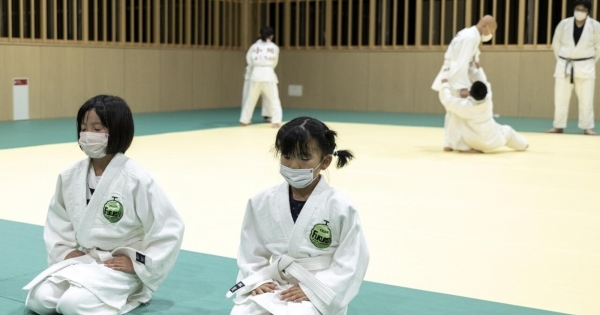Children are forced to lose weight, driven to the limit, coached or subjected to physical punishment: recurring scandals of violence against young practitioners are rocking Japanese judo, causing a crisis in the country of origin.
The situation has become so alarming that this year the Japan Gaming Association has canceled its prestigious tournament for players aged 10 to 12, saying that “the bodies and minds of children who are still developing” are being tested beyond their capabilities.
The issue is not new, as there is a Japan Judo Victims Association that counted 121 deaths as a result of the sport in schools between 1983 and 2016, but its size raises further questions.
If Japan controls the sport’s medals in world and Olympic competitions, the values of judo are on the way to extinction, as Yasushiro Yamashita, head of the Japan Judo Federation, put it.
“Judo is a sport that affirms humanity,” Yamashita, who also chairs the Japanese Olympic Committee, told AFP.
“If only results matter,” adds the 1984 Los Angeles Olympic champion and four-time gold medalist, “the philosophy of judo has become “distorted.”
According to the president of the federation, the cancellation of the national competition for children aged 10 to 12 highlighted “a problem that worries Japanese society” as a whole.
– Violence in search of power –
According to the association, the number of judo practitioners in Japan has almost halved since 2004 to about 120,000. The biggest decline is related to children.
According to local media reports, primary school-age children were forced to lose weight, sometimes up to six kilograms, so that they could compete in the lower weight classes.
They were taught techniques that were risky for their age, and intense training increased the risk of injury or exhaustion. Some parents and coaches continue to use corporal punishment.
The belief that corporal punishment makes children stronger is still widespread in Japanese sports, says Noriko Mizuguchi, 50, a silver medalist at the 1992 Olympics in Barcelona.
“There is a kind of interdependence, a bit like domestic violence, as if hitting is a sign of affection,” she explains.
Like other martial arts games, judo was used in Japan for military training in the first half of the 20th century until the end of World War II.
Martial arts were banned during the American occupation (1945-1952) before they emerged as sports, and judo made its debut at the 1964 Tokyo Olympics.
– ‘Culture of Masculinity’ –
If coaches are threatened with dismissal from their jobs for committing violent acts towards students, then it is more difficult to punish parents.
Hisako Kurata, a spokeswoman for the Japan Judo Victims Association, says she’s not sure “most parents understand the danger, they just want their kids to win.”
“They think their kids will be happy if they win titles,” added Kurata, whose 15-year-old son died in 2011 as a result of head injuries sustained at his school’s judo club.
As for Noriko Mizoguchi, who trained French women at the beginning of the third millennium, she believes that judo is “not entertainment” for young Japanese, but that the “culture of masculinity” that permeates education in the country must be achieved.
She continued, “Every child needs to be cared for and have a long-term vision. Old school supporters fear that judo will lose its power if children’s competitions are stopped. In fact, I think it will get stronger.”
Source: El Iktisad
